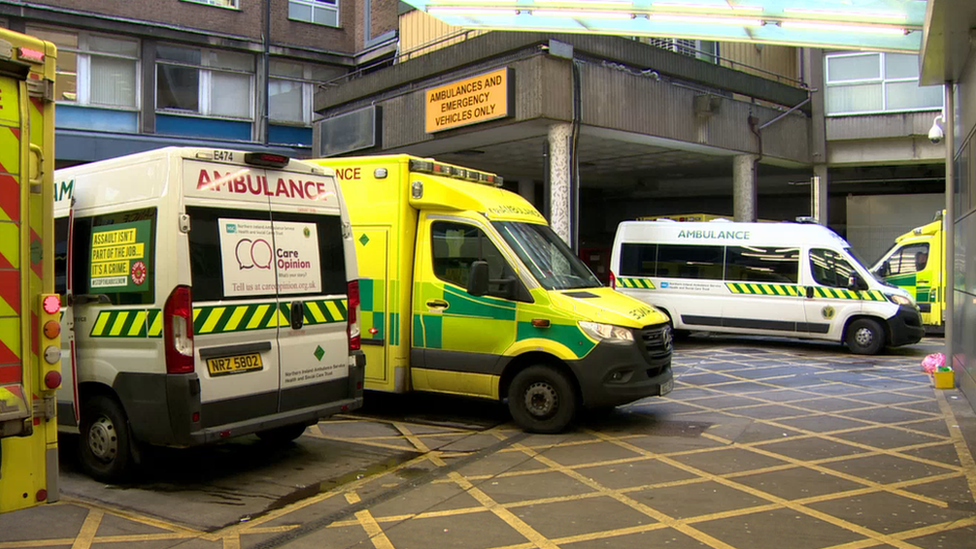Civil servants cannot 'overreach' on NHS, says top offical
- Published
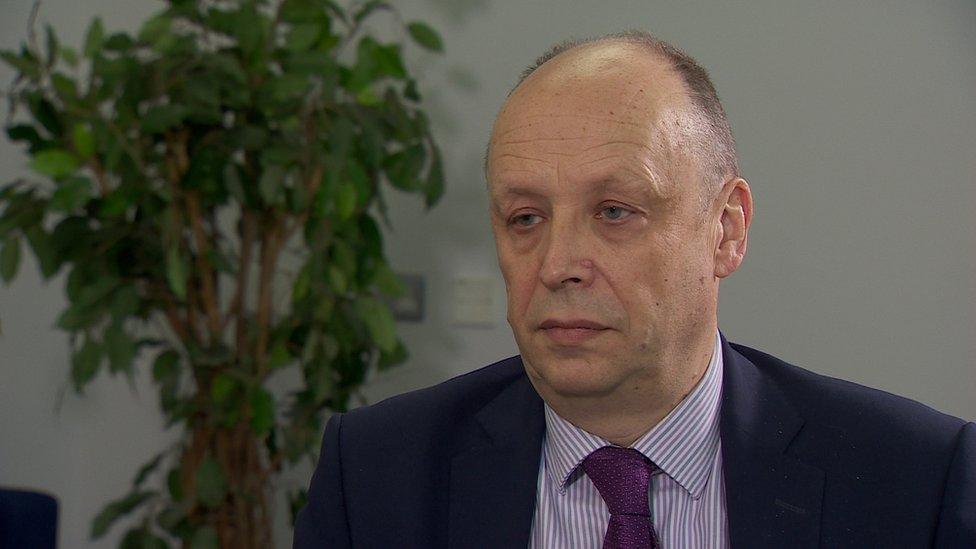
Civil servants are conscious of not "overreaching" when making decisions about the NHS in Northern Ireland, the head of the department of health has said.
Peter May told BBC News NI that "massive efforts" are being made to deal with current health pressures.
However, he admitted there was "no simple solution".
He said inconsistency at Stormont meant there had been no sustained focus on healthcare for six years.
The permanent secretary added that he and other permanent secretaries were conscious of an "accountability deficit".
"We are very cautious and conscious of the need to take decisions that are for the best for our society, but not to overreach in taking those decisions, to move outside what it would be appropriate for unelected public officials to do," he said.
'All consuming'
"If you look back over the last five or six years, we've had nearly a year now without an executive.
"Prior to that, Covid was pretty all-consuming and then there were three years of no ministers prior to that as well.
"So that's a six-year period in which there hasn't been that long-term sustained focus on how we are going to improve our health and social care system and for me, that's the key area that we need to focus on."
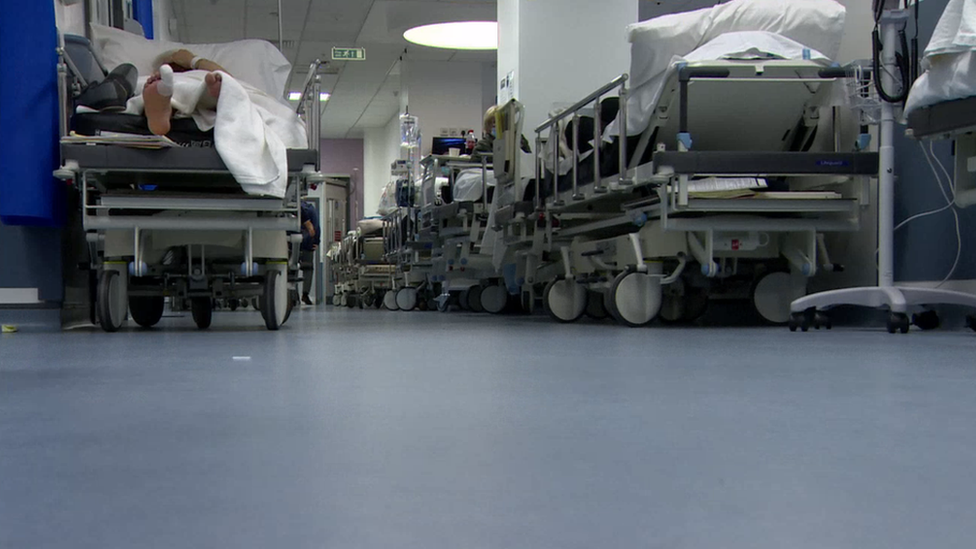
Patients waiting on trolleys in the emergency department of the Royal Victoria Hospital in Belfast
Mr May said funding "was not the sole solution…but there is no solution without it".
He outlined priority planning areas for the future, including increased domiciliary care and wider social care capacity, with sustained investment in staffing.
Previous consultation by the department has forecast an 80% increase in demand for social care by 2040 due to demographic change.
Acute hospital services also need to be rebuilt and reconfigured.
Mr May said creating centres of excellence would improve the quality of care and increase the numbers that can be treated.
There will also be a focus on community-based care to help people live healthier lives and reduce the need for acute care.
Not just winter pressures
Even with action, Mr May said there could be no guarantee the current pressures would not resurface next winter.
"These pressures are not just in the winter now, they're all the year round.
"Covid appears to have accelerated that pattern and made things more difficult, so there are some challenges here about the level of demand as well as the capacity.
"We need to try to have a whole system approach to addressing both of those sets of issues."


Peter May is the latest person to try and steer the health and social care service through choppy waters.
His task is unenviable, some might even say thankless.
The big difference, however, is that he is a civil servant and not someone voted in by the public.
He told me that he does have faith in the health and political system and that a local executive is the answer to going forward.
As a civil servant, he's been permanent secretary in infrastructure, justice and now health.
The latter is probably the most challenging as he addresses ambulance turnaround times, staffing and budget deficits.
Mr May says it's about small steps in order to reach the final destination.
The public might prefer his strides were a little quicker.
He also says it's up to him and others to make it work and not Westminster.
Peter May has been in the seat nine months, he's hopeful that in another nine months a health minister will instead be in his place.

Mr May also paid tribute to the staff across the health service.
"I am very conscious of the scale of the pressures and their relentless nature. I also want to make clear that we cannot keep asking our teams to go through this. We cannot accept the fact that too many people are waiting in distress, discomfort and pain for care.
"The problems we are seeing across health and social care are mirrored across these islands. There is no quick or simple solution."
Mr May said that despite this there were a series of measure which together could mitigate pressures.
"Every percentage point improvement we can achieve on ambulance turnarounds and delayed discharges makes a difference to patients."
The department has emphasised that the health dervice is still open, and that people in need of care should not be put off seeking it.
Related topics
- Published20 December 2022
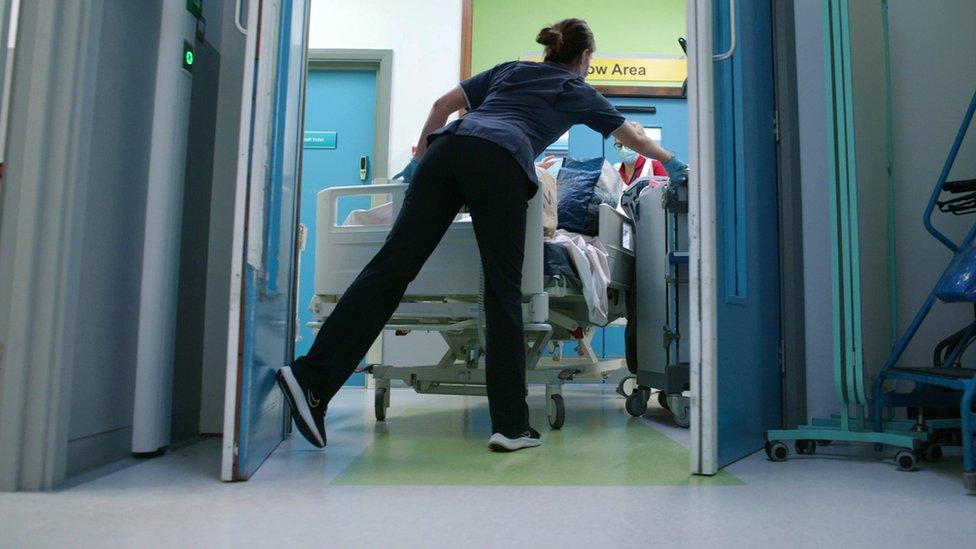
- Published19 December 2022
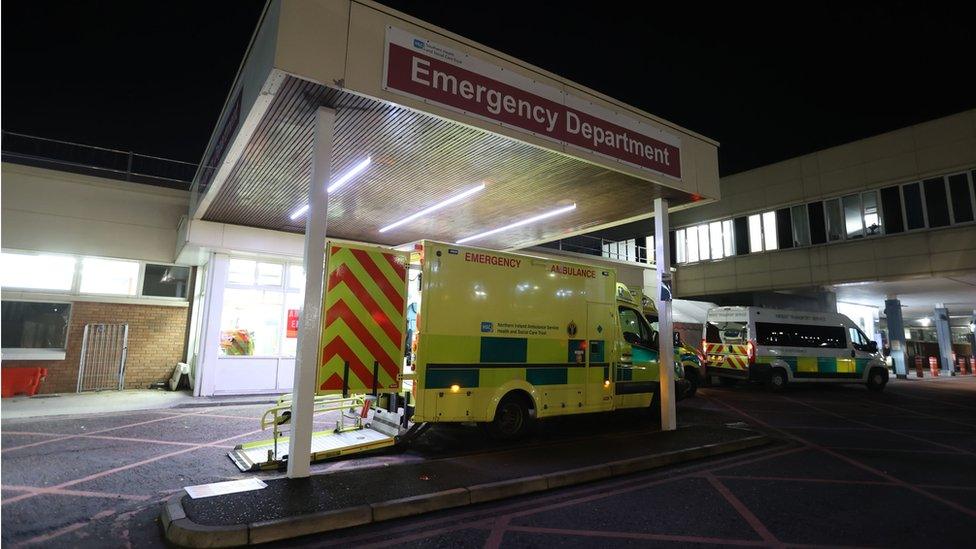
- Published14 December 2022
